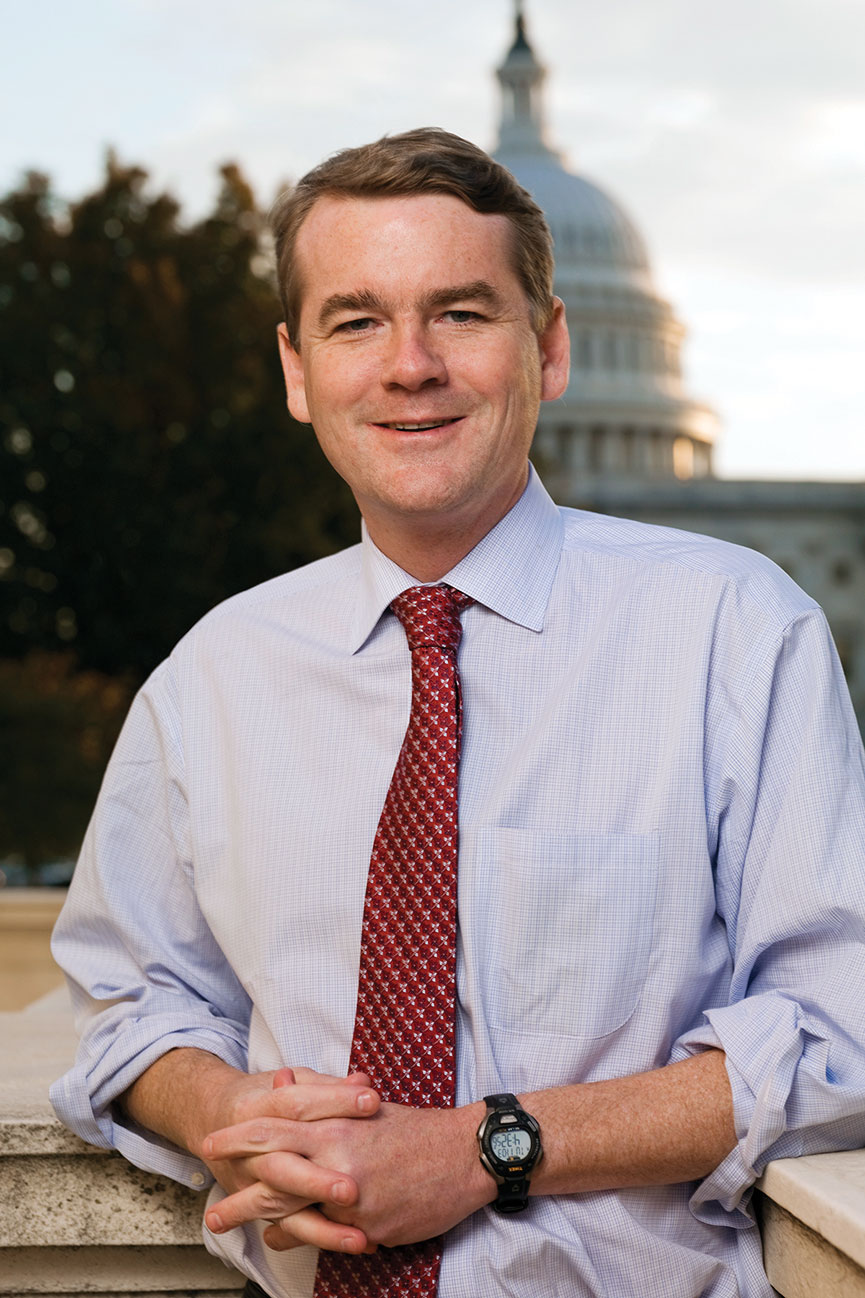On Tuesday, April 20, Colorado U.S. Senator Michael Bennet introduced the Outdoor Restoration Partnership Act to create or sustain over two million jobs in the outdoors by investing in forest and watershed restoration. This legislation will provide direct support to local, collaborative efforts to restore wildlife habitat, expand outdoor access, and mitigate wildfire. It will also spur federal investment in areas at high-risk of wildfire, with high priority wildlife habitat, or in the wildland-urban interface – where homes and businesses meet wildland vegetation – to build climate resilience in the West.
Bennet, who chairs the U.S. Senate Committee on Agriculture, Nutrition, and Forestry’s Subcommittee on Conservation, Climate, Forestry, and Natural Resources, first introduced this proposal in December. President Joe Biden included a commitment to invest in restoration and resilience in his American Jobs Plan, highlighting Bennet’s legislation as a model. U.S. Representatives Jason Crow (D-Colo.) and Mike Simpson (R-Idaho) will introduce companion legislation in the U.S. House of Representatives. U.S. Senator Ron Wyden (D-Ore.) is also co-sponsor of the bill.
“Forests, rangeland, and watersheds are essential infrastructure that sustain our economy in Colorado. For too long, Congress has failed to meaningfully invest in our western lands, undermining our economy and way of life,” said Bennet. “The Outdoor Restoration Partnership Act changes that – investing in the West by creating good-paying jobs to improve forest health, restore watersheds, enhance wildlife habitat, and expand access to the outdoors. I’m pleased President Biden recognized the importance of restoring America’s forests by including this proposal in his American Jobs Plan. This legislation was written with – and inspired by – Coloradans, and I look forward to working with my colleagues in Congress to make it a reality.”
“As we confront climate change, we have an unprecedented chance to create good-paying jobs and generate economic growth while taking meaningful climate action. President Biden understands this imperative and I’m grateful that our plan to do just that was included in the President’s American Jobs Plan,” said Crow. “The Outdoor Restoration Partnership Act would make critical investments in our forests and watersheds to prevent wildfires and other natural disasters. As we continue to recover from the economic crisis caused by COVID-19, this bipartisan legislation would create two million jobs and support the outdoor industry that plays a massive role in our economy. It also recognizes the importance of strong partnerships between the federal government and our state, local, and tribal partners in outdoor restoration efforts.”
“The climate crisis is not some distant threat. It’s here, and families out West feel its impacts year after year as catastrophic wildfires and extreme weather events devastate their communities,” said Wyden. “Climate action and climate resilience efforts go hand in hand. The West desperately needs a federal investment to restore our public lands and mitigate wildfire risks – investments that will make our communities safer, protect our special places for generations to come, and create good paying jobs, especially in hard hit rural America.”
The Outdoor Restoration Partnership Act would: Establish an Outdoor Restoration Fund to increase support for local collaborative efforts to restore forests and watersheds, reduce wildfire risk, clean up public lands, enhance wildlife habitat, remove invasive species, and expand outdoor access. The bill establishes an advisory council of local, industry, conservation, and national experts to advise on funding priorities, coordinate with existing regional efforts, and provide oversight.
Empower local leaders by making $20 billion directly available to state and local governments, tribes, special districts, and non-profits to support restoration, resilience, and mitigation projects across public, private, and tribal lands. Empowering local leaders that have an ability to bring diverse voices to the table is the path for progress in the West.
Partner with states and tribes to invest $40 billion in targeted projects to restore wildlife habitat and reduce wildfire risk across the country. This investment allows federal agencies to partner with local stakeholders to improve forest and watershed health and build climate and community resilience. Tackling the backlog of restoration and resilience projects across public, private, and tribal land will sustain our economy and way of life.

